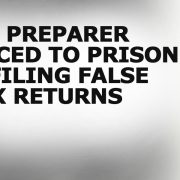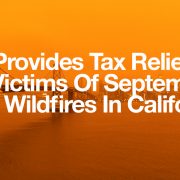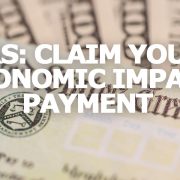How Is The IRS Jumping On Board The Age Of Improving Customer Experience?
How Is The IRS Jumping On Board The Age Of Improving Customer Experience?
Earlier in January 2021, the IRS delivered to Congress the Taxpayer First Act Report as a response to legislation passed in July 2019. The report includes recommendations to improve IRS operations.
As part of a larger effort related to the Taxpayer First Act Report, the IRS announced on January 26, 2021 the creation of a new Chief Taxpayer Experience Officer position to help unify and expand efforts across the IRS to serve taxpayers. Ken Corbin, currently the IRS Wage and Investment commissioner, will take on this new role while also continuing to serve in his position overseeing the Service’s largest operating division.
The Taxpayer Experience Office, led by the Chief Taxpayer Experience Officer, reporting directly to the Commissioner, is one of the new roles envisioned in the multi-year plan. The position will work with business units and offices across the IRS, including Chief Counsel, the Independent Office of Appeals and the National Taxpayer Advocate. The role is envisioned as working in coordination with the National Taxpayer Advocate, which is an independent organization inside the agency that helps taxpayers with issues that can’t be resolved with the IRS.
An Opportunity For Taxpayers Who Owe The IRS.
Now while this announcement may be the catalyst to promote more efficient operation of the IRS, do not think that a more efficient IRS will make your tax problem disappear. If anything, future changes will make it easier for the IRS to enforce the tax laws using less manpower and resources. That is why you should be utilizing this valuable time to get yourself prepared so that when IRS is ready to start or resume action against you, you are ready to make the best offer or proposal to take control of your outstanding tax debts.
As a prerequisite to any proposal to the IRS, you must be in current compliance. That means if you have any outstanding income tax returns, they must be completed and submitted to IRS. Also, if you are required to make estimated tax payments, you must be current in making those payments. Fortunately, as we are now in 2021, taxpayers who expect to owe for 2020 should have their 2020 income tax returns done now so that the 2020 liability can be rolled over into any proposal and the requirement to make estimated tax payments will now start for 2021.
Remember that the tax laws remain the same regardless of whether the IRS makes changes to its operations, so all taxpayers should continue to meet their tax obligations as normal. Individuals and businesses should keep filing their tax returns and making payments and deposits with the IRS, as they are required to do by law.
The take away from this – use the Federal government’s lag time to your advantage to prepare for the future.
What Should You Do?
You know that at the Law Offices Of Jeffrey B. Kahn, P.C. we are always thinking of ways that our clients can save on taxes. If you are selected for an audit, stand up to the IRS by getting representation. Tax problems are usually a serious matter and must be handled appropriately so it’s important to that you’ve hired the best lawyer for your particular situation. The tax attorneys at the Law Offices Of Jeffrey B. Kahn, P.C. located in Orange County (Irvine), Metropolitan Los Angeles (Long Beach and Ontario) and elsewhere in California are highly skilled in handling tax matters and can effectively represent at all levels with the IRS and State Tax Agencies including criminal tax investigations and attempted prosecutions, undisclosed foreign bank accounts and other foreign assets, and unreported foreign income. Also if you are involved in cannabis, check out what our cannabis tax attorneys can do for you.











 Follow
Follow Follow
Follow